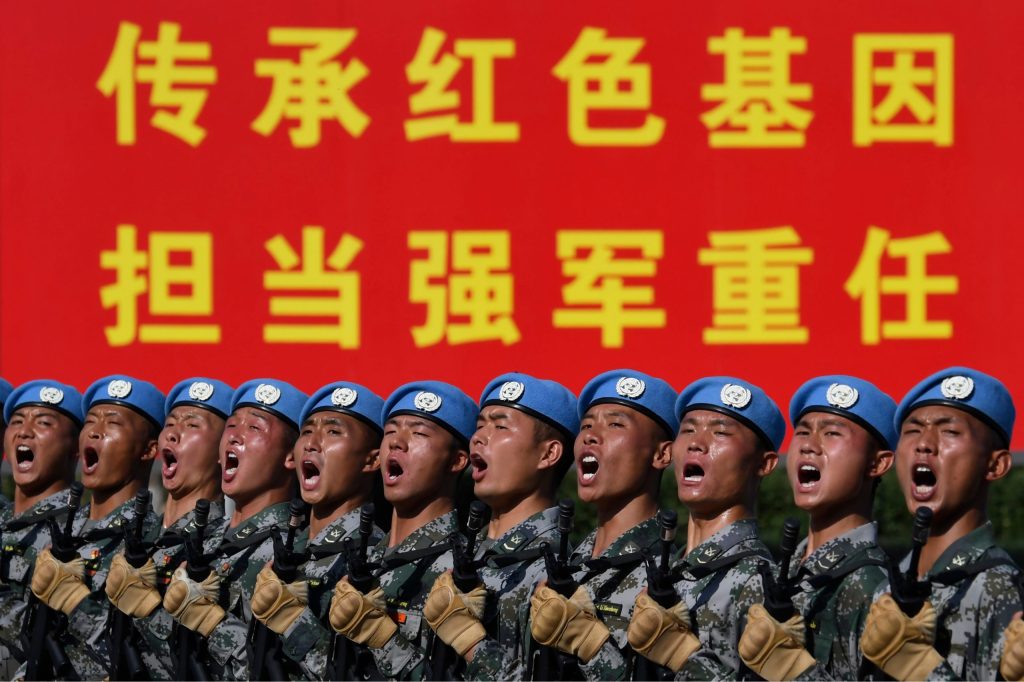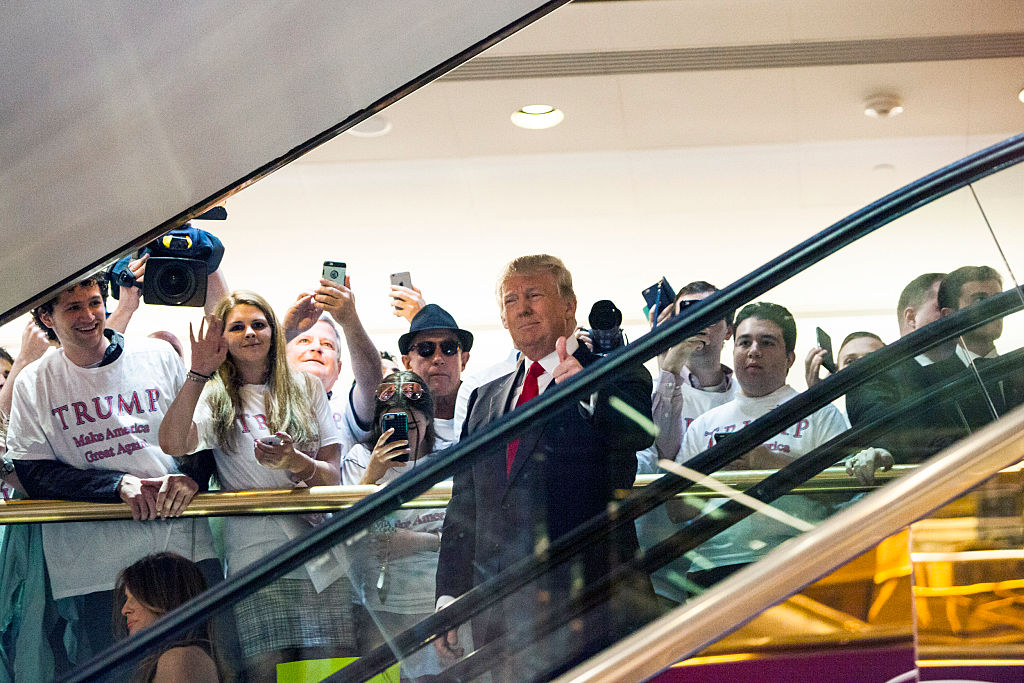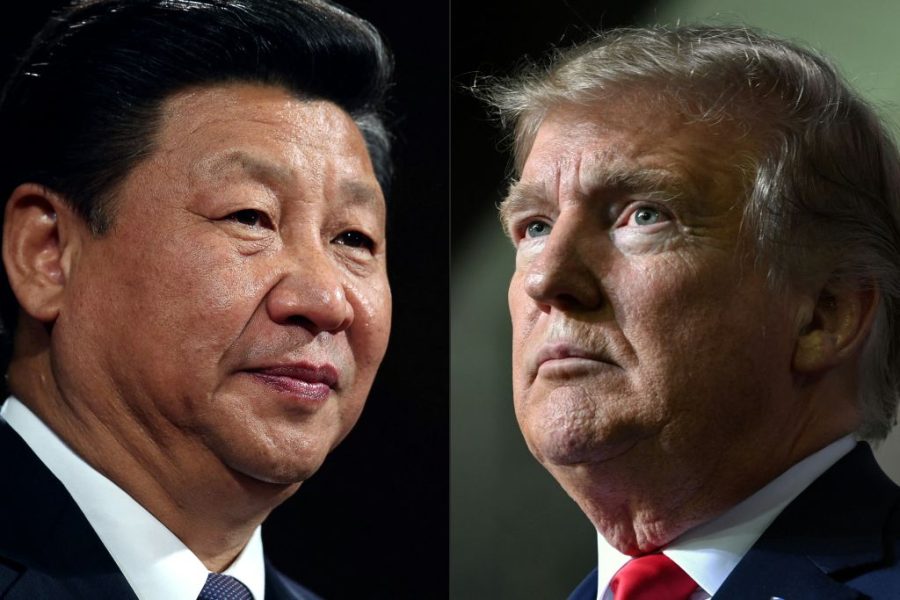‘We are an international headhunter company, your profile attracted me,’ began the remarkable message I received on LinkedIn. My newfound interlocutor, ‘Mr Zha’, explained in broken English that, ‘one of our partner in China looking for a freelancer researcher, helping them write some papers they will pay 1500-3000 USD for 6-10 pages. Contact me if you are interested. I can send you the [job description].’
To many such an approach might seem inconspicuous and hardly worth mentioning. After all, isn’t this precisely the sort of engagement that LinkedIn is designed for? But when you work for a foreign-policy think tank, business offers like these are highly unusual: our work is corporate and side-contracts are rare; the pay was three times the market rate; and the poor English was atypical — to say the least — of any reputable approach.
So unusual was this message, that I immediately remarked on it to a colleague, only to hear that he too had received the same message. After further enquiries, it transpired that alongside myself, messages were received by our executive director, then-research director and — perhaps most tellingly, our Asia studies director. A curious colleague replied and was sent the job description. In it, Mr Zha promised easy work that, once completed, would be followed by what he euphemistically described ‘a long-term cooperation for years’.
He went on to clarify that ‘a face-to-face Interview in China’ would be required but not to fear as the ‘company will pay the travel fee including air tickets, hotel, meals, and other related’ costs. A fee of $3,000 and an all-expenses-paid trip to China for a couple of days’ work was beginning to sound too good to be true. And indeed it was.
It transpired Mr Zha was a state-sponsored Chinese recruiter tasked with identifying and recruiting Western academics into an exercise designed to turn, compromise or denigrate Beijing’s critics. One senior security source with personal experience of conducting such operations described it as ‘a shoddily executed attempt at every intelligence agency’s textbook method for compromising academics.’
We reported the incident to the security services via channels and ignored our would-be interlocutor’s messages. But it seems that we were far from alone. For this week, it was reported that MI5 has recorded over 10,000 such examples of recruitment on LinkedIn over the past decade. In September 2020, the Daily Telegraph exposed the Zhenhua database, which Beijing uses to compile information on targets for Chinese intelligence activities.
Nobody at the Henry Jackson Society was remotely surprised to see that we were repeatedly mentioned in it. As one of the Chinese government’s most vocal critics, we knew why we — more than any other think tank — were the foremost target of China’s attention in London. If all of China’s influence efforts were as futile as Mr Zha’s message, it would warrant little attention. But the truth is that this message was just the tip of the iceberg of the infiltration and disruption China unleashes on those who seek to challenge it about its repression abroad and at home.
The methods that Beijing has deployed against us are worth recounting. In recent years, we have been warned by Microsoft of state-directed hacking attempts on our email server, had a number of laptops stolen in suspect circumstances, seen our website face thousands of ‘brute force’ hacking attempts while our events in Parliament have been repeatedly crashed by Chinese ‘diplomats’, who, in turn, have summoned us for formal rebukes for our ‘unreliable, discreditable, and unhelpful research.’
While such disruption is nothing compared to the persecution the Chinese Communist party directs at its own people, it is nonetheless tiresome. It is also an affront to our own democratic debate that a foreign state is able to meddle with think-tanks and campaigners without response from the UK government. As yet, however, there is no state support for the targets of such state meddling. In truth, while all of us would know who to call if we were the victim of crime, none of us know who turn when we are the victims of foreign meddling.
This situation cannot continue, especially as these malign practices are growing at an alarming pace. Although we are opponents of just about every hostile state, including Russia and Iran, none has attempted anything remotely comparable to China’s intimidation campaign.
If China’s actions at home are anything to go by, the frequency of attempts at interference is likely to increase. Just as Hong Kong’s increased democratic opposition to the Communist party preceded an assault on its freedoms, we can expect the same here. The history of communist states teaches us that, as China’s repressive apparatus is ever more emboldened at home, it will look outwards to wield its might abroad
So far, there is little to suggest the UK is ready to openly acknowledge, let alone face this threat. With the British Security Service spending just 13 percent of its budget on protecting its own citizens from foreign intelligence operations, it’s not clear that it would be able to act even if ministers were to commit to seriously tackling China.
In the meantime, those targeted by Chinese disruption will be left to defend themselves from China’s threats and enticing offers. Let us hope they are all as unconvincing as Mr Zha.
This article was originally published on The Spectator’s UK website.

























